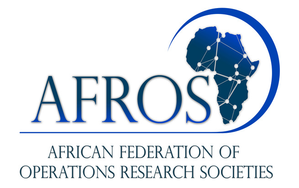- Mission of the AWG
The working group will promote research in agri-food supply chains in Africa for improved data-driven decision making and enhanced food security. This aligns to AFROS mission of promoting Operations research in Africa and establishing its value for improvements in complex decision making.
- Rationale
Many economies of African countries are based on the exploitation of agriculture that are correspondingly important in relation to their economic development. The agriculture sector employs thousands of people and makes use of both simple and sophisticated processes. In 2019, the share of GDP in Kenya, Ethiopia, Sierra Leone, Niger, and Mali was 34.1%, 34%,57.4%, 38.2% and 37.3% respectively. This confirms that the agriculture sector is a key component of sustainable development for many countries in Africa.
A typical agricultural supply chain considers several critical components-storage, pre- and post-distribution, packaging, transport, farm inputs such as fertilizers, all of which are important to maintain the flow of the agri-food supply chain. This means that operations research models could address storage problems, distribution problems, marketing problems, financing problems and food traceability among other problems in the production and distribution of the food supply.
In Supply Chain Management, a lot of research work has been carried out in manufacturing and service sectors with little attention given to the agricultural sector particularly in the African countries, yet it contributes a major part of human livelihood on the continent and raw materials for other industries. In addition, Agri-food supply chains have witnessed rapid and profound changes in the recent past, including a strong increase in agri-food trade and a consolidation of supply chains. The diversification, differentiation and improvement of agriculture is critical for growth of the African economies and for poverty eradication. Therefore, agri-food supply chain research and practice can be an effective way of increasing the efficiency of the agri-food supply chains and reducing poverty in African countries.
The AWG will focus on issues that are important and substantial to agri-food supply chains in Africa. Working and living in Africa makes it easy to observe the agri-food supply chain and obtain the data for the research and practice improvement.
The group deliverables are:
- Identify gaps to be explored about agri-food supply chain practices in Africa
- Collaboration with other researchers outside Africa on the identified gaps to enrich theory construction
- Knowledge and experience sharing among researchers and practitioners
- Advice policy makers and other stakeholders on matters affecting agri-food supply chains
- Activities
- Explore agri-food supply chain practices in Africa
- Link Researchers from Africa to experts outside Africa for Collaborative research
- Organize Knowledge and experience sharing workshops and conferences
- Organize Annual Meetings
- Organization and Members
Members:
- Humphrey Anjoga (Africa Institute of Technology and Management, anjoga@afritam.org)
- Amos Gichamba (Southwest Baptist University, agichamba@gmail.com)
- Rose Karimi (International Cooperative Alliance-Africa, karimikiwanuka@gmail.com)
- Taylor Karunga- Technical University of Kenya
- Steve Kiriinya- Technical University of Kenya
- Ben Muma- Technical University of Kenya
- Jackline Mwende Mutunga (Technical University of Kenya, jacquiemwende@gmail.com)
- Kendi Muchungi (Nikola Energy (Co-founder), Africa Nazarene University, mwaremwega@gmail.com)
- Chrisopher Ngacho (Kisii University,
cngacho@kisiiuniversity.ac.ke - Boniface Ngari Ireri (Multimedia University of Kenya, bnireri2030@gmail.com)
- Julius Nyerere- Technical University of Kenya
- Ezekiel Okwach- Technical University of Kenya
- Jim Shi (New Jersey Institute of Technology (NJIT), junmin.shi@njit.edu)
To join this AWG, please email to Rose Karimi at karimikiwanuka@gmail.com
